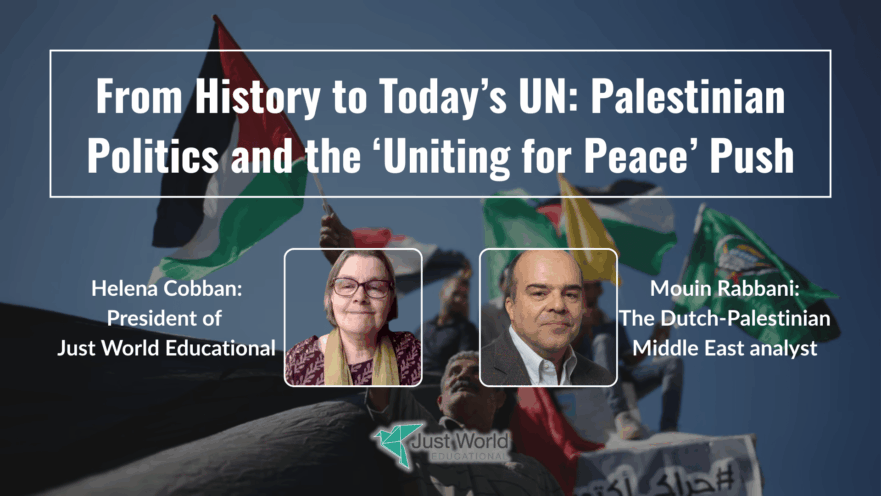A new in-depth interview featured the Dutch-Palestinian political analyst Mouin Rabbani in conversation with Helena on the prospects for Palestinian reconciliation. The discussion traced how divisions between Fatah and Hamas became entrenched and why efforts at unity have repeatedly failed. Rabbani explained that after Arafat’s death, Mahmoud Abbas reshaped the Palestinian Authority into an authoritarian system serving Israeli and Western interests rather than the Palestinian people.
Rabbani highlighted how Abbas centralized power in his own hands, turning the PLO into a shell and weakening its democratic structures. By monopolizing decision-making and using financial pressure, Abbas undermined reconciliation attempts. Western governments reinforced this by treating Abbas as the sole “legitimate” leader while isolating Hamas, creating a dynamic that made unity almost impossible.
The interview also examined Hamas’s own role. Rabbani noted that while the movement showed some willingness to compromise, it faced consistent rejection from Fatah and the PA leadership. He described a pattern where agreements were signed—sometimes with broad support—but quickly abandoned once Abbas faced pressure from Israel, the U.S., or Europe. This left the Palestinian national movement fragmented and vulnerable.
Helena and Rabbani placed this struggle within a broader historical frame. They compared Abbas’s approach with that of Yasser Arafat, who, despite serious faults, sought to preserve the PLO as a national umbrella. In contrast, Abbas hollowed out the institutions that once represented all Palestinians, reducing them to tools for his own rule. Rabbani argued that this shift was one of the most damaging legacies of the post-Oslo period.
The discussion pointed to the current crisis in Gaza as a test case. Reconciliation could offer a way forward, but only if Palestinians rebuild their representative institutions and replace leaders who act as subcontractors for the occupation. Rabbani emphasized that without internal unity, Palestinians cannot effectively confront Israel’s ongoing aggression or make use of regional and international support.
The interview closed with an open question that Rabbani posed: Can the Palestinian national movement survive the divisions and betrayals of recent decades, or will it collapse under the weight of authoritarianism and occupation? It is a question that remains central not only for Palestinians but for anyone concerned with justice in the region. Click here to watch the full interview on JWE’s YouTube channel.


